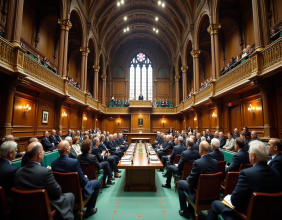Highlights
- MFN grants one country preferential trade terms with another.
- The privileged country pays the lowest duty charges for exports.
- MFN ensures equality in trade, avoiding discriminatory tariffs.
Detailed Explanation
The concept of Most Favored Nation (MFN) refers to a trade privilege granted by one country to another, where the privileged nation receives the lowest possible delivered duty paid (DDP) charges on its exports. Essentially, MFN status ensures that the products from a specific country are treated as favorably as the products from any other nation with which the granting country has a trade agreement. This means that the privileged nation is assured of the lowest tariffs and duties that the granting country applies to any of its trade partners.
MFN is a cornerstone of international trade agreements and is primarily designed to promote fair competition and equality among trading nations. By offering MFN status, a country commits to treating its trading partner as favorably as it treats the most favored nation, eliminating discriminatory tariffs or trade barriers. This helps reduce the complexity of international trade and ensures that one country’s goods are not subjected to higher duties or taxes than those of others.
For example, if Country A grants MFN status to Country B, it means that Country B’s products will be subject to the lowest tariff rates Country A applies to any of its trade partners. If Country A later reduces tariffs for another country, Country B is automatically entitled to the same reduction, ensuring that trade between the two countries remains competitive and fair.
MFN status can be granted through bilateral or multilateral trade agreements and is often used as a tool to encourage cooperation and trade between countries. It promotes trade liberalization and supports the principle of non-discrimination, which is central to the World Trade Organization (WTO) agreements. However, MFN status does not mean that countries must provide the same trade terms to all partners; rather, it ensures that the most favorable terms granted to any country are extended to others benefiting from MFN status.
A significant benefit of MFN treatment is that it reduces trade barriers, fosters economic growth, and strengthens diplomatic relations between nations. However, it also requires transparency and a commitment to fairness in the application of tariffs and trade policies.
Conclusion
Most Favored Nation (MFN) status plays a crucial role in facilitating smooth and equitable trade between countries by ensuring that no nation is subject to more onerous tariffs than the most favored nation in a trade relationship. Through MFN agreements, countries can promote fairness, reduce trade barriers, and ensure that their trading partners are treated equally, fostering better economic and diplomatic relations. While the benefits of MFN are clear, it is important for countries to honor the principles of transparency and non-discrimination to maintain the integrity of these agreements.





